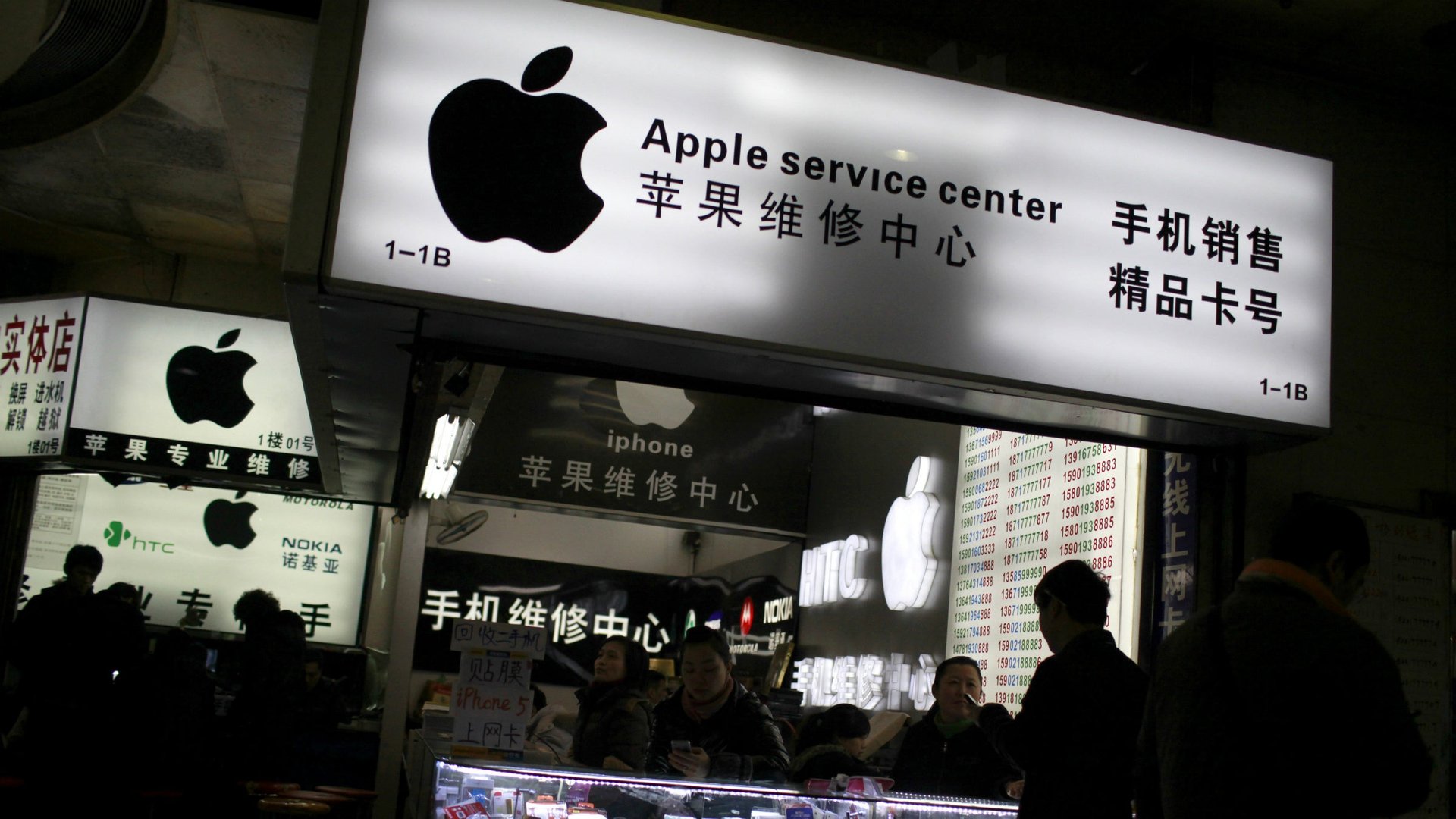“Phantom downloads” are Apple’s latest app store headache in China
Users of China’s iTunes app store noticed a disquieting development in recent weeks: their accounts were showing they had purchased apps—mostly Chinese mobile games—that had never heard of before. According to Tech in Asia, the phantom downloads may have been “the work of an app-promotion company that somehow gained access to user accounts.”


Users of China’s iTunes app store noticed a disquieting development in recent weeks: their accounts were showing they had purchased apps—mostly Chinese mobile games—that had never heard of before. According to Tech in Asia, the phantom downloads may have been “the work of an app-promotion company that somehow gained access to user accounts.”
It wouldn’t be the first time that Apple’s mobile platform has run into security problems in China: developers there have complained that they have lost hundreds of thousands of dollars to fraud. But it’s not just criminals trying to take advantage of iTunes users—it’s the users themselves.
Seeking free apps, about a third of iPhone and iPad users in China have turned to “jailbreaking” their devices—a process that unlocks the device to third party apps via an alternative app store known as Cydia. When the latest jailbreaking tool was released earlier this year, 20% of traffic to its website was from China, compared to 17% from the US. Compounding the problem further, several services are offering up free pirated apps, some of which don’t even require jailbreaking. As a result, Chinese developers are reporting tiny profits from the iTunes store.
App stores in China are a hot commodity, but as Baidu’s $1.9 billion offer for 91 Wireless shows, most of the action has been on Google’s Android platform. As Apple expands in China and pushes for a huge deal with mega-carrier China Mobile, it still hasn’t solved the problem of persuading users to pay up for apps—and the existence of phantom downloads surely won’t change their minds.